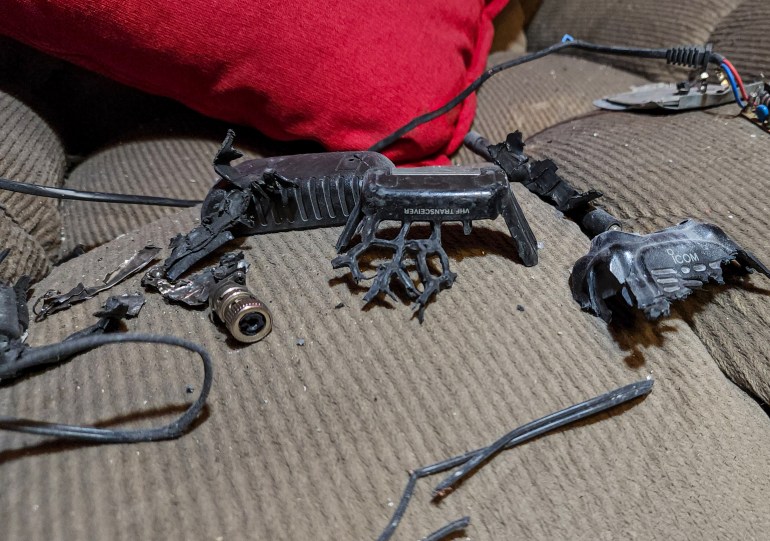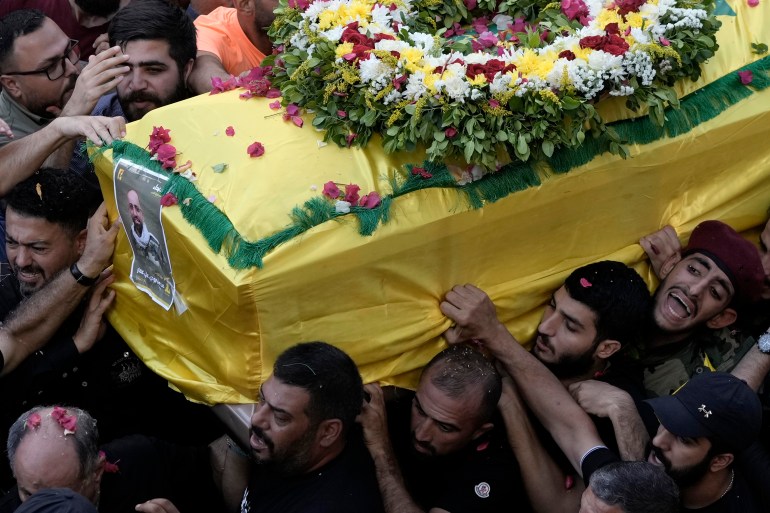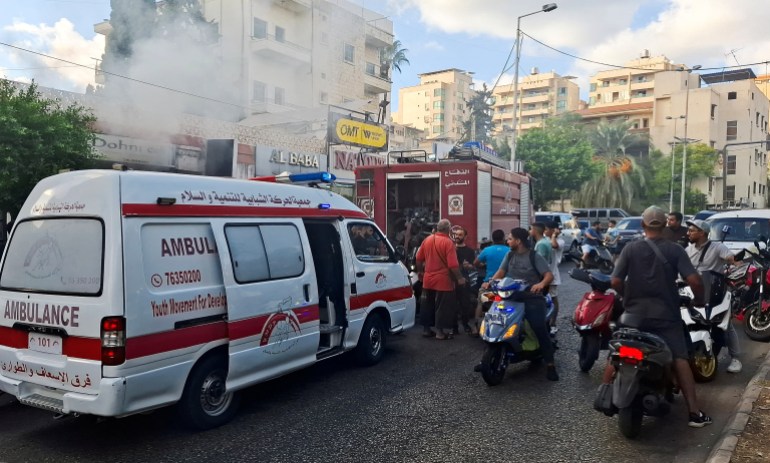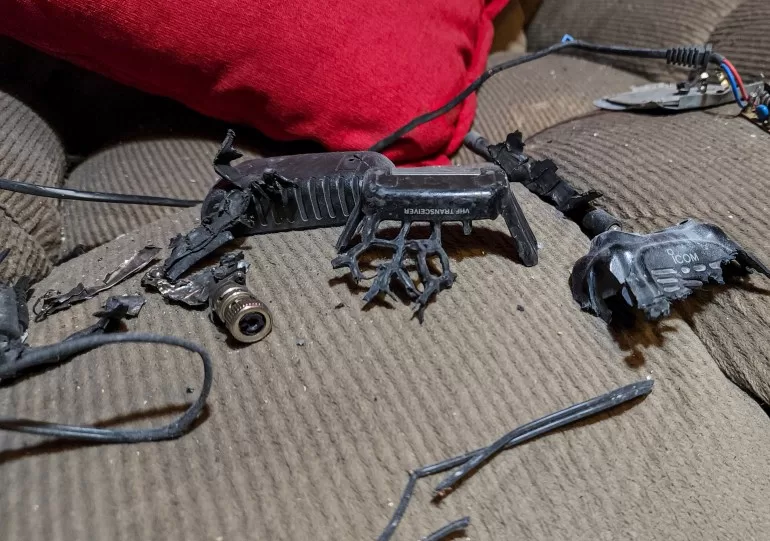One day after thousands of pagers exploded across Lebanon, more explosions of handheld devices, including walkie-talkies, laptops and radios, have killed at least 14 people and injured 450.
On Tuesday, the detonation of pagers belonging to Hezbollah members that had been preloaded with explosives had killed 12 people and injured nearly 3,000.
Reports on Wednesday of several simultaneous blasts quickly spread on messaging apps with people sharing images of exploded walkie-talkies and residential buildings on fire. Here’s what we know:
Where in Lebanon did the new explosions happen?
Information is still trickling in, but several blasts were reported in the southern suburbs of Beirut as well as in the southern city of Tyre on Wednesday afternoon.
Images posted on social media showed vehicles on fire and smoke rising from a residential area as reports came in of walkie-talkie radios and even solar cells exploding.
Al Jazeera correspondent Ali Hashem witnessed one car explode during a funeral in southern Lebanon, seemingly set ablaze by an explosion from within rather than being hit by a drone, he noted.
“There have been several blasts across southern Lebanon and Beirut southern suburbs … in walkie-talkies and not pagers,” he said.
He described chaos on the streets with ambulances racing to pick up the injured and reports of more explosions coming in and spreading panic.
“Probably we are witnessing another wave, … really concerning given that yesterday’s incident already overwhelmed the whole health sector,” Hashem added.
What exploded?
There are reports of several different devices blowing up.
Among them are walkie-talkie radios, mobile phones, laptops and even some solar energy systems.
Several cars reportedly exploded as well, but it is not clear if those were caused by the car itself exploding or something inside it.
What are the walkie-talkie radios that exploded?
A regular walkie-talkie is a handheld, two-way radio device that allows people to exchange messages with the walkie-talkie base or others holding mobile receivers.
They are short-range devices and need to stay close to their base to transmit.
The devices being called walkie-talkie radios are apparently IC-V82s, manufactured by the Japanese company ICOM.
Radios have a much bigger range than regular walkie-talkies, and the IC-V82s, according to The Jerusalem Post, are typically used by amateurs for personal use rather than for commercial or emergency broadcasting.

How do you make walkie-talkie radios explode?
Again, the details are not clear yet.
Some observers have wondered if Wednesday’s blasts were similar to what happened with the pagers.
With those, the supply chain might have been infiltrated and the devices loaded with 1 to 3 grammes (0.04 to 0.11oz) of a powerful explosive.
It seems that at least some Hezbollah members believe the explosions are linked to batteries.
Several of them quickly took the batteries out of their radios and tossed them away after one exploded during a funeral in a southern suburb of Beirut, according to the Reuters news agency.
Pagers use radio transmission and reception as does, of course, a radio.
Most of the impacted devices appeared to be communication systems, but there were also some reports of other devices exploding, like solar panels. At least one such explosion injured a girl.
Hezbollah and the Lebanese government have blamed Israel for the explosions. Israel has not commented.

Why would Israel carry out the blasts?
Israel’s long-term strategy is unclear, but the attacks are a notable escalation against Hezbollah and Lebanon.
The explosions come after months of a mostly low-intensity conflict between Israel and Hezbollah and have reignited fears of an all-out war breaking out.
Israeli Defence Minister Yoav Gallant stoked fears further on Wednesday evening, saying the Israeli military would divert forces and resources from its nearly yearlong war in Gaza to the north where Israel borders Lebanon.
How big of a blow is this to Hezbollah?
The attacks were a massive security breach for Hezbollah as well as a potent tool of psychological warfare with some analysts wondering if they have shaken the group’s image domestically.
Hezbollah’s communications apparatus appeared to remain operational, according to security and political analyst Elijah Magnier, who said after the first attack that thousands of older pagers were unaffected and the group had alternative secure communications in place.
As panic set in, people in Lebanon started disposing of their devices or taking them into shops to be checked.
At the American hospital, the Lebanese army used a controlled detonation to neutralise an apparently unexploded device discovered by medical staff in an ambulance.
On Wednesday, before the latest explosions, Hezbollah said it had attacked Israeli artillery positions with rockets in the first strike on Israel since the initial attacks, according to Reuters.
What’s next?
“This attack by Israel is being seen in Lebanon as a terrorist attack because it has fed terror,” Al Jazeera correspondent Imran Khan said from Beirut. “People are scared.”
Magnier said Israel had successfully managed to “create confusion among Hezbollah and in society”.
He noted the cascading reports and climate of chaos as a sign that Israel’s strategy to wait more than 24 hours before the second detonations had been a successful one.
“This is exactly the objective of Israel – to create such confusion and prepare perhaps for a phase three,” he said.
“We have to wait and see what they are preparing next because this is not the end of it.”

